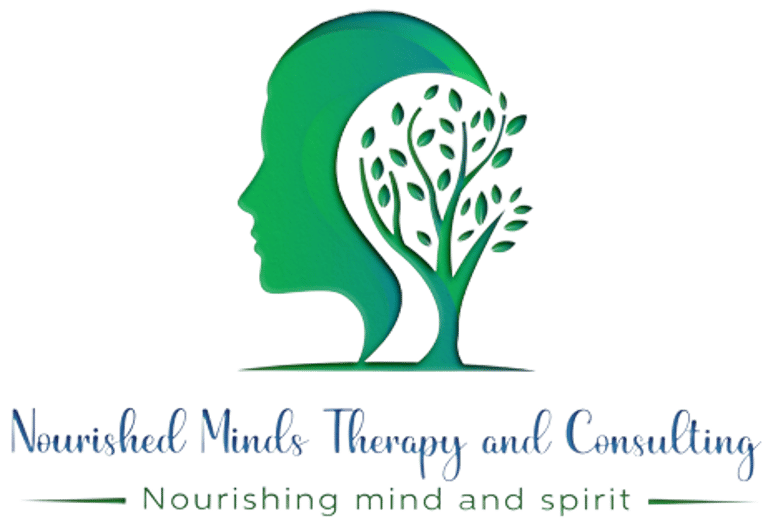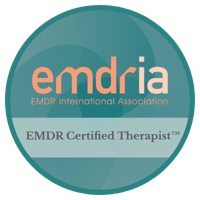Now scheduling EMDR Intensives!
Understanding Dissociative Disorders
Dissociative disorders are complex mental health conditions that involve disruptions in memory, identity, consciousness, and perception. They often develop as a response to trauma and can significantly impact an individual's life. While dissociation can be an adaptive response to sustained trauma, it can lead to difficulties in most areas of functioning when unknown or unmanaged. This page describes the main types of dissociative disorders, including Dissociative Identity Disorder (DID), Other Specified Dissociative Disorder (OSDD), and other related conditions.
Dissociative Identity Disorder (DID)
Dissociative Identity Disorder (DID), formerly known as Multiple Personality Disorder, is characterized by the presence of two or more distinct personality states or identities within a single individual. These distinct identities, often called "alters," may have their own names, ages, histories, and characteristics.
Symptoms of DID
Multiple Identities: The presence of two or more distinct identities or personality states.
Amnesia: Gaps in memory for personal history, including people, places, and events.
Identity Confusion: Feeling uncertain about one's identity or sense of self.
Depersonalization and Derealization: Feeling detached from oneself or the environment.
Distress and Impairment: Significant distress or impairment in social, occupational, or other important areas of functioning.
Many individuals who have DID go 7 to 10 years in treatment before getting the proper diagnosis, often resulting in increased stress, confusion, trauma, anxiety, and depression. If you have experienced these symptoms or others described on this page and are seeking therapy, it is imperative that you choose a therapist well-versed in dissociative disorders and appropriate treatment approaches.
Other Specified Dissociative Disorder (OSDD)
Other Specified Dissociative Disorder (OSDD) is a diagnosis for individuals who do not meet the full criteria for DID but still experience significant dissociative symptoms. OSDD is a broad category that can include various dissociative experiences.
Types of OSDD
OSDD-1a: Involves dissociative symptoms and identity disruption without distinct, fully-formed alters.
OSDD-1b: Includes dissociative symptoms and identity disruption where different personality states may be distinct, but may not have amnesia between alters (as in the case of DID).
Symptoms of OSDD
Identity Disruption: Similar to DID but without fully distinct identities.
Memory Gaps: Inability to recall important personal information.
Emotional Detachment: Feeling detached from emotions or physical sensations.
Impairment in Functioning: Significant distress or impairment in daily life.
Dissociative Amnesia
Dissociative Amnesia involves an inability to recall important personal information, usually related to trauma or stress. This memory loss goes beyond normal forgetfulness and is often localized to specific events or periods.
Symptoms:
Memory Loss: Inability to remember important personal information.
Confusion: Difficulty recalling personal identity or life history.
Depersonalization/Derealization Disorder
Depersonalization/Derealization Disorder is characterized by persistent or recurrent experiences of depersonalization (feeling detached from oneself) and/or derealization (feeling that the external world is unreal).
Symptoms:
Depersonalization: Feeling detached from one’s thoughts, feelings, or body.
Derealization: Feeling that the external environment is unreal or distorted.
When to Seek Help
If you or someone you know is experiencing symptoms of a dissociative disorder, it is important to seek professional help. Dissociative disorders often require specialized treatment, including therapy and, in some cases, medication.
Treatment Options
Psychotherapy: The primary treatment for dissociative disorders. Therapies such as Cognitive Behavioral Therapy (CBT), Dialectical Behavior Therapy (DBT), Eye Movement Desensitization and Reprocessing (EMDR), Internal Family Systems (IFS), and other triphasic trauma-focused therapies can be effective.
Medication: While there are no medications specifically for dissociative disorders, medications may be prescribed to address associated symptoms like depression or anxiety.
Support Groups: Connecting with others who have similar experiences can provide valuable support and understanding.
Dissociative disorders are serious mental health conditions that often require professional support. Recognizing the symptoms and seeking help can lead to reduced stress and significantly improved quality of life. If you or someone you know is struggling with dissociative symptoms, don’t hesitate to reach out. Nourished Minds Therapy offers several empirically based treatment approaches that have been proven effective in the treatment of dissociative disorders. Visit our Therapeutic Approaches Page or Contact Me to find out how we can tailor a plan to support your mental wellness.







